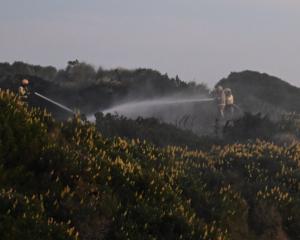Rugby New Zealand 2011 rights-protection manager Carol Harris said businesses in Dunedin would benefit from the Rugby World Cup and the 18,000 people it was expected to bring to Dunedin, but they had to follow the rules.
In exchange for the millions of dollars they poured into the event, sponsors expected their rights to be protected.
Steve Condie, a lawyer from the ministry, said the rules protecting sponsors were almost the same as those used in other major events, including the Fifa World Cup and 2012 London Olympics.
The purpose was to stop "ambush marketing", where companies and organisations tried to trade on the event without contributing to the tournament coffers.
The "clean" areas will operate the day before and the day of matches.
There were some urban myths about advertising material and clean-zone rules, but it should be reasonably clear when something was not appropriate, Mr Condie said.
Basically, doing anything that suggested an association with the tournament or sponsors, or intruded on the event or those going to it, was illegal.
When advertising any events during the Rugby World Cup period, use of the logos of the sponsors or tournament and the phrases Rugby World Cup, World Cup, RWC, Rugby New Zealand 2011, Webb Ellis Cup were banned, but phrases such as "Come watch the rugby here", "Watch Italy v Ireland here" or "Come in for a drink after the rugby ..." were acceptable.
The clean zone around Forsyth Barr Stadium, which will be known as Otago Stadium during the tournament, extended 500m from the stadium and targeted areas believed to be at most risk from ambush marketing, he said.
A clean transport route, with the same rules as the clean zone would also apply to Cumberland and Castle Sts and the main roads in and out of Dunedin.
Inside the clean areas, as long as businesses and organisations operated in the usual way, they should not be breaching the rules.
If people breached the rules, the ministry had several options: it could issue a formal warning, seize offending goods, seek damages, or in extreme cases, prosecute.
Dunedin's rights protection manager, Sandy Graham, said anyone with questions regarding the rules could contact her at the city council.
A transport management plan for game days was was expected to be released in the next few weeks.











